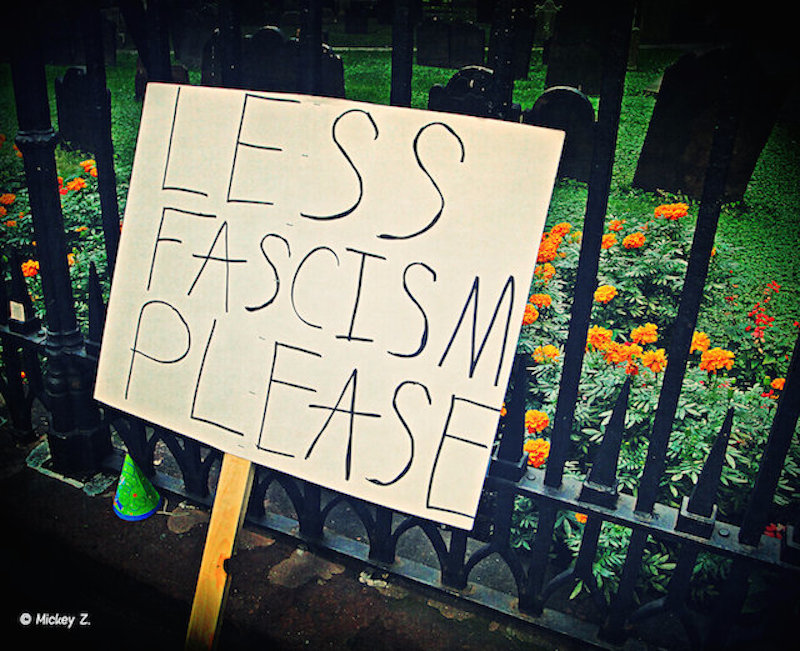Useful Liberal Illusions: From FDR to Obama | Mickey Z.

Photo credit: Mickey Z.
Mickey Z. -- World News Trust
Nov. 3, 2014
For eight years, during the 90s, I watched with a mixture of astonishment and contempt as Bill Clinton was regularly portrayed as a “liberal” by supporters while his opponents to the “right” went much further: viewing him as some kind of dangerous radical.
Of course, the same useful delusion exists in full effect today with the Pope of Hope in the White House. In the case of JFK, his liberal (sic) status is often given as a reason why he was assassinated.
Then we have the granddaddy of all phony progressives: Franklin Delano Roosevelt.
Even as FDR was admitting to being “deeply impressed” with Benito Mussolini -- referring to the Italian ruler as that “admirable Italian gentleman” -- in the 1930s, the two-party deception nearly saw him overthrown.
more
http://worldnewstrust.com/useful-liberal-illusions-from-fdr-to-obama-mickey-z
Igel
(35,274 posts)Some was fascist. Some wasn't. (Here we have to take pains to keep in mind a fixed, historically accurate definition of "fascism".)
But the mood was definitely that the elites had all the answers and just needed a government structure to implement their ultimate solutions. Japan had one approach; Italy had another; Russia had a third; Germany had a fourth; Britain had a fifth; the US had a sixth. They could be placed in broad categories, but each was different and each relied crucially on government control over the economy and society (since the attitude was that everything was money and environment, and if you could adjust and control income levels and the environment you could easily perfect human beings and reconstruct them in the images of the elite that had all the answers).
It was to this overweening government presence in society and personal lives in Britain (and since Britain and the US were vaguely similar, to the US by implication) that Orwell, well left of center at the time (but ultimately a defender of individual liberties) gave the dubious soubriquet "liberal fascism."
So FDR could admire Mussolini. Without really agreeing with him. Things are much more complex when the world isn't clearly divided into us-right-good-just-moral and them-wrong-bad-unjust-immoral.
Many (D) and (R) are divided not on the size of government, but the places where government intrudes and controls, how a few seek to reshape the many in their own image. But neither side sees the intrusion it prefers: "my" intrusiveness is good and for your own good, you just don't realize it (yet), while the other person's intrusiveness is venal and bad.
redruddyred
(1,615 posts)none of this is anything new. considering such it's shocking that we get moderately liberal elected officials at all.
of course there's a lot to be disappointed about, but our leaders deserve to be judged w/i their own contexts. it's my feeling that actually working in politics is exponentially more difficult than sitting on the sidelines criticizing it.